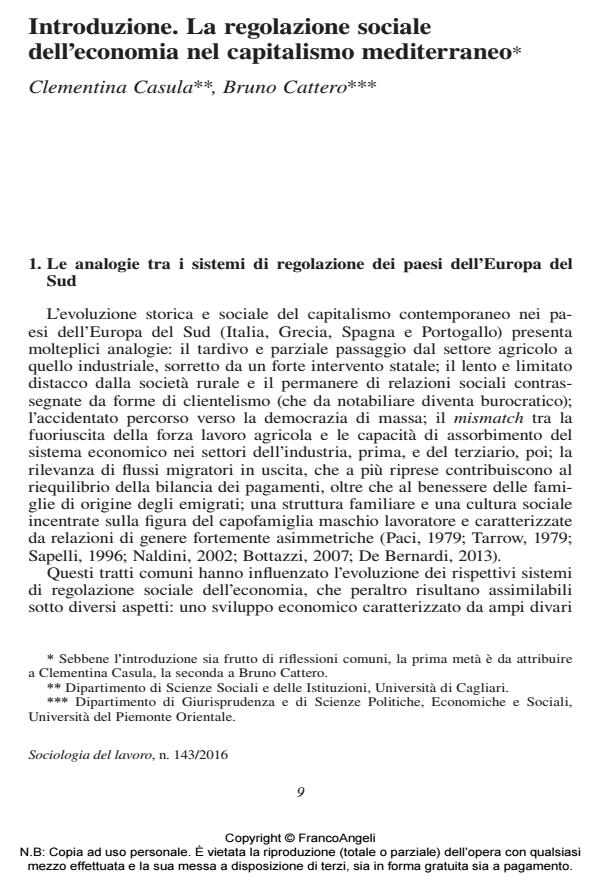Introduction. The social regulation of the economy in Mediterranean capitalism
Journal title SOCIOLOGIA DEL LAVORO
Author/s Clementina Casula, Bruno Cattero
Publishing Year 2016 Issue 2016/143
Language Italian Pages 14 P. 9-22 File size 106 KB
DOI 10.3280/SL2016-143001
DOI is like a bar code for intellectual property: to have more infomation
click here
Below, you can see the article first page
If you want to buy this article in PDF format, you can do it, following the instructions to buy download credits

FrancoAngeli is member of Publishers International Linking Association, Inc (PILA), a not-for-profit association which run the CrossRef service enabling links to and from online scholarly content.
Similarities in the development of capitalism in Southern European countries define national systems of social regulation of the economy sharing significant traits. The category of Mediterranean capitalism allows to take into account those peculiarities within the debate on the varieties of capitalism, avoiding a too polarised framing of the issue; also, if confronted with the European level of regulation, the category seems to be a useful analytical tool to interpret the evolution of the process of European integration. The introduction proceeds briefly presenting, in their main lines of argument, the book essays: those of the first part, directly related to the issue of Mediterranean capitalism, and those of the second part, considering other research issues.
Keywords: Mediterranean capitalism, European integration, Varieties of Capitalism, Southern Europe
Clementina Casula, Bruno Cattero, Introduzione. La regolazione sociale dell’economia nel capitalismo mediterraneo in "SOCIOLOGIA DEL LAVORO " 143/2016, pp 9-22, DOI: 10.3280/SL2016-143001